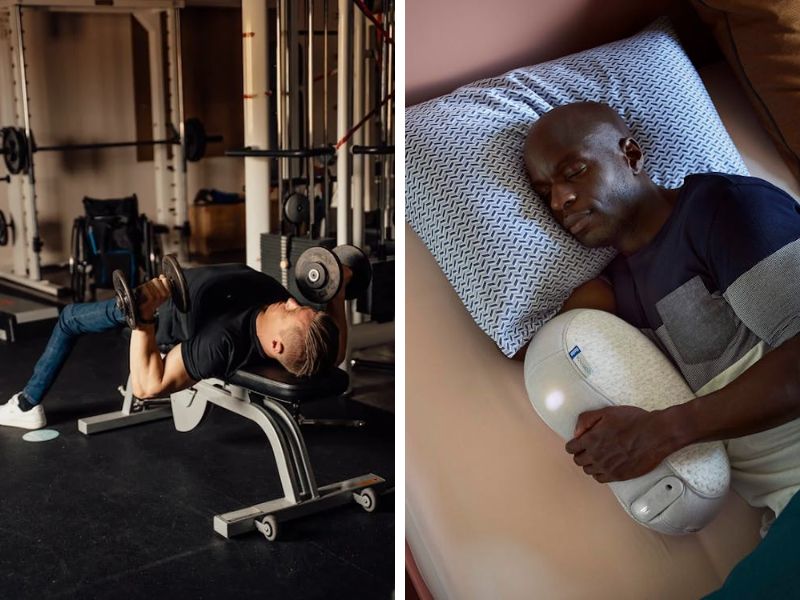Getting up early, preparing meals, cleaning your home, and caring for your kids probably take up most of your day. Consequently, you may only have time to run on the treadmill or do strength training before going to sleep.
Do all those late-night huffs and puffs harm your sleep? Let’s find out how working out before bed can affect your sleep and how to avoid it.

Image Credit: Pexels/Alesia Kozik & Pexels/Julian Jagtenberg
Does Working Out Before Bed Affect Your Sleep?
There are so many factors to consider, the study methodology is inconsistent, and research findings on the topic are mixed, making it hard to say “yes” or “no” definitively. Kin M. Yuen, M.D., M.S., an assistant professor, says the jury’s still out on exercising before bed is harmful. Research shows aerobic exercise training significantly reduces daytime sleepiness and improves sleep quality among older adults with insomnia. Your sympathetic nervous system increases during exercise, causing your heart rate and airway muscles to relax.
Getting A Good Night’s Rest By Exercising Before Bed
Monitor your workouts and sleep. Exercise before bed is not likely to result in poor sleep since the research is inconclusive. Dr. Yuen suggests keeping a journal of your evening workouts and how you feel the next day. Keep your slumber in check with these tips if your after-dark movements disturb your sleep.

Image Credit: Pexels/Miriam Alonso
Engage In Low-Intensity Activities
Since vigorous workouts can raise your heart rate and body temperature, which may make it harder to fall asleep and stay asleep, Dr. Yuen suggests that you do your intense workouts in the afternoon and mellow movements in the evening. If possible, end your exercise 30 minutes to an hour before bed to allow your heart rate to slow down and your body temperature to cool.
You Should Avoid Trying New Workouts
Sleep disruptions are common after a challenging workout due to muscle repair. A person who runs two miles daily may not have much repair work because the body is not as demanding. Dr. Yuen suggests sticking with activities your body is familiar with to reduce the amount of tissue recovery required.